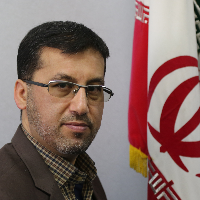Structural Signs of Islamic Security; a Case Study of the Prophet's Government
Author(s):
Abstract:
The assumption that there exists a firm correlation between meanings and objective structures, and that aspects of various theories can be understood by analyzing structures shapes the foundation for this article’s analytical framework. The author tries to grasp a number of influential teachings in the discussion of Islamic security by investigating the pattern of the Prophet’s governments as a valid Islamic pattern in the realm of politics and government. In doing so, the author discusses the structure of the Islamic society under the Prophet from two perspectives including: the social structure perspective and the political point of view. While discussing social structure, the alternative pattern of Ummah as contrasted to the dominant pattern of tribe is studied and in the second discussion, the power structure based upon responsibility vis-à-vis the power structure founded on domination is offered. The critical and analytical considerations set out by the author presents certain Islamic teachings with respect to security. According to the author, this security can be referred to as the theory of Ummah security, drawing on the Prophet’s state model. This theory revolves around three premises including the amalgamation of belief borders and territorial limits, the combination of religious exigencies and territorial interests, and finally the mixture of statecraft and liberation.
Keywords:
Security , Islamic discourse , Prophet's Government , Tribe , Ignorance , Ummah , Jihad
Language:
Persian
Published:
Journal of Strategic Studies, Volume:7 Issue: 4, 2005
Pages:
641 to 667
https://magiran.com/p251124
مقالات دیگری از این نویسنده (گان)
-
Explaining the meaning and concept of socialization and community building with emphasis on the thought of Imam Khamenei
, Mohammadbagher Babahadi *
Journal of State Studies of Contemporary Iran, -
determining the system of national security dimensions in the Islamic Republic of Iran
Fardin Dabirian *,
National Security,


